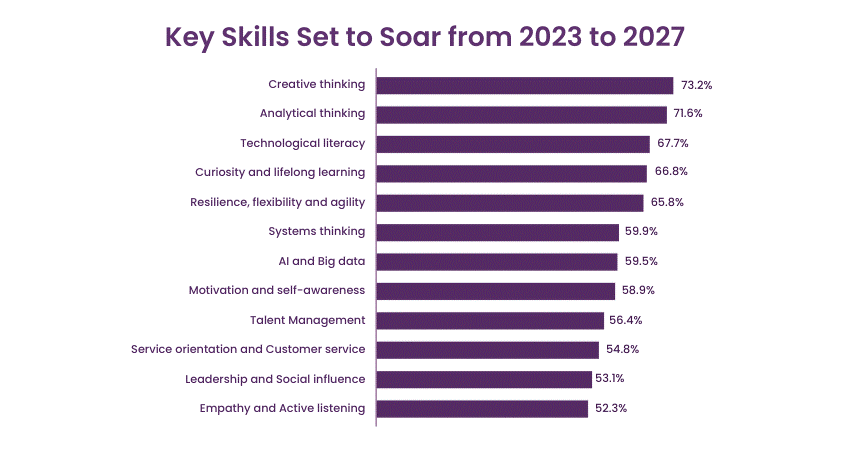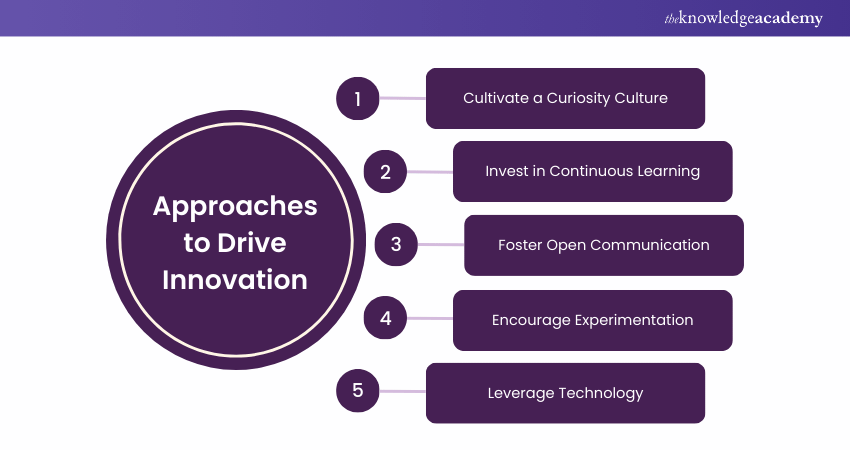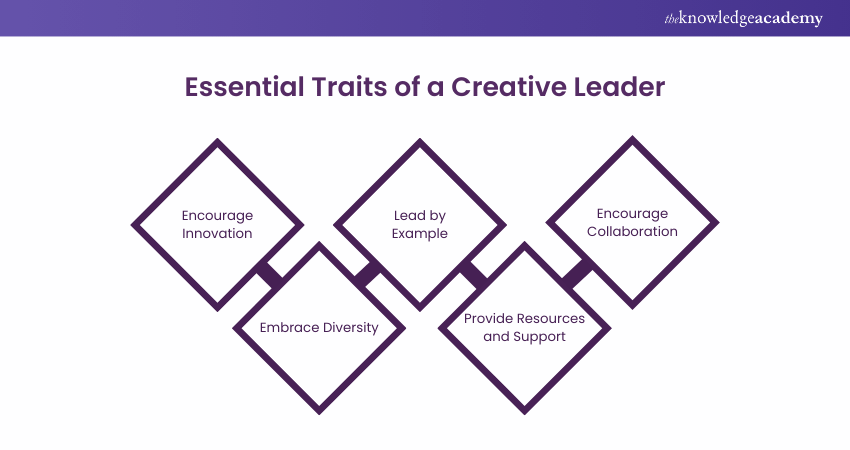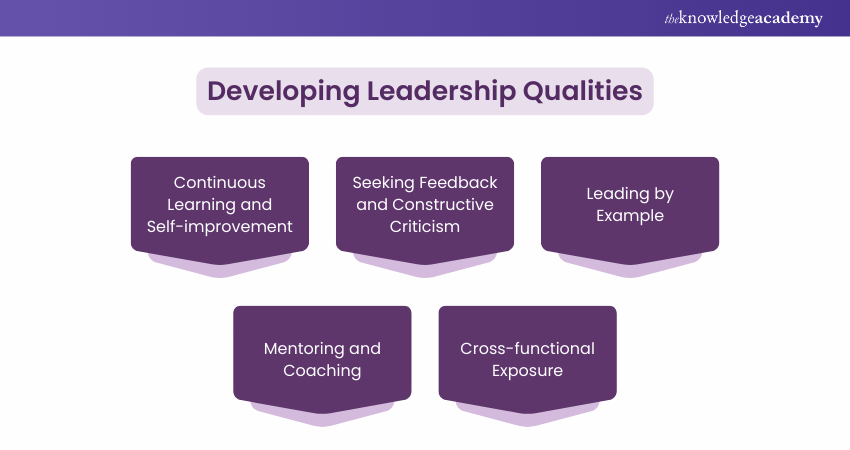We may not have the course you’re looking for. If you enquire or give us a call on +30 2111995372 and speak to our training experts, we may still be able to help with your training requirements.
We ensure quality, budget-alignment, and timely delivery by our expert instructors.

Picture a team grappling with a tight project deadline, feeling stressed and unsure of their next steps. Given this situation, what qualities enable a leader to step in and steer them towards success? This is where the significance of key Leadership Qualities comes into play. But how can you cultivate these qualities to inspire and energise your team?
In this blog, we will explore the essential Leadership Qualities that define effective leaders. From self-awareness to influence and compassion, we will explore the traits that enable leaders to navigate challenges and drive their teams towards excellence. Let’s uncover what makes a good leader and how you can embody these traits to make a lasting impact.
Table of Contents
1) What Makes a Good Leader?
2) 23 Leadership Qualities That Every Good Leaders Should Have
3) Developing Leadership Qualities
4) What are the Five Essential Qualities of a Great Leader?
5) What Defines a Leadership Skill?
6) Conclusion
What Makes a Good Leader?
There is no one set definition of a good Leader. A person with exceptional Leadership Qualities may differ from another Leader. However, that doesn't necessarily make one more effective than the other. The mark of a good Leader is that they have earned their team's respect and are willing to assist with the workload to accomplish the group's goal.
Strong Leaders are vital, particularly in an ever-evolving world. From community organisations and volunteer groups to professional associations and corporations, effective Leaders ensure that people work together cohesively to accomplish their goals.

23 Leadership Qualities That Every Good Leader Should Have
Great leaders embody qualities that drive success and foster innovation. Vision, self-awareness, communication, and decision-making set the foundation. Traits like adaptability, empathy, transparency, and resilience build trust. Courage, integrity, passion, and collaboration inspire teams. Creativity, gratitude, and respect enhance workplace culture.
Let’s explore these leadership qualities in more detail:

1) Vision and Goal-setting
At the heart of Leadership lies the ability to envision a future others might overlook. A good leader possesses the foresight to chart a course toward a shared aspiration. With a clear vision, they act as the compass, guiding their team through uncharted waters, and instilling a sense of purpose and direction that fuels motivation.
2) Self-Awareness
Self-awareness involves understanding your own personality traits, behaviours, anxieties, and emotions. Although it is a more inwardly focused trait, self-awareness and humility are essential qualities of Leadership. The better you understand yourself and recognise your own strengths and weaknesses, the more effective you can be as a leader.
3) Communication Skill
Communication is the way through which thoughts are exchanged, selections are conveyed, and relationships are nurtured. A skilled Leader articulates mind precisely, making sure that each group member is on the same page. They actively listen, empathise, and adapt their communication style to connect to various individuals. As a result, they foster collaboration and cohesion.
4) Decision-making Abilities
The journey to become an influential Leader often presents complex choices. A proficient Leader demonstrates astute decision-making skills, weighing risks and benefits with a discerning eye. Their ability to make timely, well-informed decisions underpins a culture of confidence and progress.
Enhance your decision-making skills with our Decision Making Course – Join today!
5) Adaptability and Flexibility
Change is the only constant. In such changing scenarios, a resilient Leader navigates change with finesse, embracing challenges as opportunities for growth. They exhibit flexibility by adjusting strategies, acknowledging that rigidity can impede innovation and obstruct the path to success.
6) Growth Mindset
A strategic mindset is crucial for leaders who seek non-stop improvement and flexibility. It involves embracing demanding situations, mastering feedback, and viewing disasters as possibilities for the boom. Leaders with a growth mindset inspire their teams to increase their abilities and attempt excellence, fostering surroundings where innovation and development are advocated.
7) Transparency
Transparency remains one of the foundational Leadership Qualities. A transparent Leader ensures decisions are made openly, providing explanations for implemented plans. Moreover, such a Leader welcomes feedback and adapts accordingly.
This approach instils confidence within the team, as they comprehend the rationale behind decisions and the forward strategy. Striving for transparency not only earns trust but also garners respect from those within the team.
8) Empathy
Connecting with others on an emotional level is an essential component of sturdy Leadership. Leaders must build relationships, build trust, and actively engage with their crew contributors. Enhancing their emotional intelligence further provides them with better recognition and supports a greater supportive and nurturing environment.
9) Patience
Patience is an essential quality for leaders, allowing them to remain calm and composed in the face of challenges. It helps in making thoughtful decisions, managing team dynamics, and providing support to team members as they work through difficulties. A patient leader fosters a positive work environment where employees feel valued and understood.
10) Innovation
Innovative Leadership doesn't demand being a creative genius in every aspect but rather encourages team members to unleash their innovative mindset. Good Leaders believe that innovation begins by challenging the team, encouraging experimentation, and collectively brainstorming solutions, regardless of the outcomes.

Distinctive, innovative Leaders distinguish themselves by fearlessly embracing new ideas and fostering open discussions. Motivating others to think creatively is an essential strategy innovative Leaders employ to enhance creativity.
11) Accountability and Responsibility
Leadership is intertwined with responsibility. A Leader shoulders the accountability for successes and setbacks, fostering a sense of trust and integrity within the team. They lead by example, demonstrating the importance of owning one's actions and standing by their commitments.
12) Courage
Courage is crucial for leaders to take formidable movements and make difficult selections. It entails taking a stand for what is right, even in the face of opposition, and being willing to take risks for the advantage of the team and organisation. Courageous leaders foster confidence and encourage their teams to triumph over limitations besides gaining their goals.
13) Compassion
Compassion goes beyond merely showing empathy or listening and seeking to understand. It requires leaders to act on what they learn. When someone shares a concern or speaks up about an issue, they won’t feel genuinely heard unless their leader takes meaningful action based on the information. This is the essence of compassionate Leadership, and it helps to build trust, enhance collaboration, and reduce turnover within organisations.
14) Influence
Influence, or the ability to persuade people through the thoughtful use of appropriate tactics, is a crucial trait of inspiring and effective leaders. For some, the term “influence” may seem unseemly. However, as a leader, you must be able to influence others to accomplish tasks — you cannot do everything alone. Influence is distinct from manipulation and must be exercised authentically and transparently. It requires high levels of emotional intelligence and trust.
Join our Leadership Skills Training and transform your ability to lead your team toward success!
15) Integrity and Honesty
Ethical conduct forms the bedrock of a Leader's credibility. Upholding integrity and honesty, even in the face of adversity, engenders a culture of trust and respect. A Leader's unwavering commitment to ethical behaviour is a guiding light for their team. As a result, they inspire their team to uphold the same standards.
16) Delegation and Empowerment
A Leader's plate often brims with tasks, which makes Delegation a critical skill. Effective delegation empowers team members to take ownership of their roles, nurturing a sense of autonomy and growth. This quality not only eases the Leader's load but also nurtures a climate of initiative and collaboration.
17) Resilience and Problem-solving
One of the Leadership Qualities of Leaders is resolving problems and surviving them. A Leader who remains steadfast in the face of adversity inspires confidence in their team. They approach problems with a solution-oriented mindset, transforming obstacles into stepping stones for progress.
Effective Leadership necessitates adept Problem-solving Skills. As a Leader, honing problem-solving abilities is crucial for the organisation's seamless functioning. The capability to defuse situations and resolve conflicts demonstrates Leadership prowess and earns the trust of the team. These skills are paramount in overcoming challenges, eliminating barriers, and showcasing Leadership integrity.
18) Passion
Passion drives leaders to pursue their vision with enthusiasm and dedication. It is the fuel that keeps them motivated and committed to their goals. Passionate leaders inspire their teams by demonstrating a genuine commitment to their work, fostering a culture of enthusiasm and high performance.
19) Creativity
Creativity enables leaders to think outside the box and devise innovative solutions to problems. It involves viewing challenges from different perspectives and encouraging a culture of experimentation and continuous improvement.

Creative leaders drive progress and help their organisations remain competitive in a rapidly changing world.
20) Gratitude
Gratitude is a powerful Leadership Quality that involves recognising and appreciating the contributions of others. Leaders who express gratitude build stronger relationships, boost team morale, and create a positive work environment. By acknowledging the efforts of their team members, grateful leaders foster loyalty and encourage continued excellence.
21) Learning Agility
Learning agility is the capacity to know what to do when faced with unfamiliar situations. If you are a “quick study” or excel in new and challenging environments, you might already possess learning agility. However, anyone can develop and enhance this skill through deliberate practice and effort. After all, great leaders are fundamentally great learners.
22) Collaboration
Collaboration is essential for effective Leadership, involving teamwork to achieve shared goals. Leaders who foster collaboration encourage open communication, share responsibilities, and leverage diverse skills, enhancing problem-solving and innovation while building team unity.
23) Respect
Respect is crucial for strong Leadership which involving valuing and appreciating every team member’s contribution. Respectful leaders create a positive, inclusive work environment, fostering trust, loyalty, and high morale, which are key to collective success.
Developing Leadership Qualities
Like any skill, good Leadership Qualities are built over time through intentional effort and continuous learning. While certain Qualities may come naturally to some, becoming an exemplary leader involves honing these attributes and embracing personal growth. So, let's explore strategies for developing such Qualities:

1) Continuous Learning and Self-improvement
The pursuit of Leadership excellence begins with a commitment to lifelong learning. A true Leader understands that knowledge is dynamic and seeks opportunities to expand their horizons. Through formal education, workshops, or even insightful conversations, embracing a growth mindset fosters a well-rounded Leader who can navigate various challenges.
2) Seeking Feedback and Constructive Criticism
Like a mirror reflects our blind spots, feedback is a catalyst for growth. Effective Leaders actively seek input from peers, superiors, and team members. Constructive criticism provides insights into areas that need development, enabling Leaders to evolve and refine their Leadership styles.
3) Leading by Example
Leadership is not just a role; it's a demonstration of character. Leading by example sets the tone for the team's behaviour and work ethic. When Leaders embody their values, they inspire their team to emulate the same virtues. Thus, they create a cohesive and motivated workforce.
4) Mentoring and Coaching
The role of a Leader extends beyond day-to-day tasks. Mentorship and coaching foster the growth of future Leaders within the organisation. Sharing experiences, offering guidance, and investing time in developing the potential of team members contribute not only to their progress but also to the Leader's refinement.
5) Cross-functional Exposure
Leadership is multifaceted, requiring an understanding of various aspects of an organisation. Exposure to different departments and roles broadens a Leader's perspective, enhancing their ability to make well-informed decisions. Cross-functional experience also fosters adaptability and empathy, essential traits for effective Leadership.
What are the Five Essential Qualities of a Great Leader?
A great leader demonstrates vision, effective communication, integrity, adaptability, and empathy. These qualities enable them to inspire teams, build trust, navigate challenges, and drive success while fostering a positive and collaborative work environment.
What Defines a Leadership Skill?
A leadership skill is the ability to guide, inspire, and influence others toward achieving common goals. It includes communication, decision-making, adaptability, and emotional intelligence, enabling leaders to foster collaboration, drive success, and create a positive work environment.
Conclusion
Mastering key Leadership Qualities is essential for anyone aspiring to be an effective leader. By embracing traits like self-awareness, learning agility, influence, and compassion, you can inspire your team, foster collaboration, and drive success. Implementing these qualities can lead to a more positive organisational culture.
Unlock your potential to lead with confidence and effectiveness – sign up for our Leadership and Management Course - now!
Frequently Asked Questions
How can Developing Leadership Qualities Benefit Individuals in Both Professional and Personal Settings?

Developing Leadership Qualities enhances decision-making skills and confidence. This leads to career advancements and helps improve team dynamics. It also boosts interpersonal relationships and personal growth by promoting responsibility and proactive problem-solving in daily life.
How do Integrity and Ethical Behaviour Contribute to Establishing the Trust and Quality of a Good Leader?

Integrity and ethical behaviour build trust and respect, which is essential for effective Leadership. Leaders who consistently demonstrate honesty and moral principles inspire loyalty and commitment, fostering a positive and transparent environment that encourages collaboration and trustworthiness.
What are the Other Resources and Offers Provided by The Knowledge Academy?

The Knowledge Academy takes global learning to new heights, offering over 3,000 online courses across 490+ locations in 190+ countries. This expansive reach ensures accessibility and convenience for learners worldwide.
Alongside our diverse Online Course Catalogue, encompassing 19 major categories, we go the extra mile by providing a plethora of free educational Online Resources like News updates, Blogs, videos, webinars, and interview questions. Tailoring learning experiences further, professionals can maximise value with customisable Course Bundles of TKA.
What is The Knowledge Pass, and How Does it Work?

The Knowledge Academy’s Knowledge Pass, a prepaid voucher, adds another layer of flexibility, allowing course bookings over a 12-month period. Join us on a journey where education knows no bounds.
What are Related Business Skills Courses and Blogs Provided by The Knowledge Academy?

The Knowledge Academy offers various Leadership Courses, including Leadership Skills and Agile Leadership Trainings. These courses cater to different skill levels, providing comprehensive insights into Organisational Leadership.
Our Business Skills Blogs covers a range of topics related to Leadership skills and upskilling, offering valuable resources, best practices, and industry insights. Whether you are a beginner or looking to advance your Leadership skills, The Knowledge Academy's diverse courses and informative blogs have you covered.
Upcoming Business Skills Resources Batches & Dates
Date
 Successful People Management and Team Leadership
Successful People Management and Team Leadership
Fri 16th May 2025
Fri 25th Jul 2025
Fri 29th Aug 2025
Fri 10th Oct 2025
Fri 28th Nov 2025






 Top Rated Course
Top Rated Course


 If you wish to make any changes to your course, please
If you wish to make any changes to your course, please


